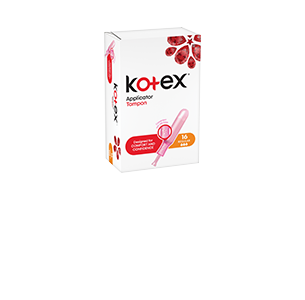
Common period problems
Let’s face it. Periods are quite a mission and, if yours is becoming a little too difficult to handle, remember that you’re not the only one. But, why are period problems more of an issue for some than others?
We are all different and so are our periods, but the answer is often linked to:
- Lifestyle choices
- Genetics
- Weight
- Age
- Level of sensitivity
Lots of girls suffer from period problems, and we are here to help you through it, so here goes…
In this section, you’ll discover the most common period problems, what could be aggravating them and our handy tips and tricks that could help you make-over your time of the month.
The most common period problems are:
- Heavy periods
- Painful periods
- Irregular periods
HEAVY PERIODS (a.k.a MENORRHAGIA)
Some women have longer and heavier periods. Heavy bleeding simply means having to change your pad more often during the first few days. Heavy periods can make some women feel very tired during this time, and it’s helpful to take an iron supplement or to eat iron-rich food like meat, nuts, liver, sunflower seeds or dark-green leafy vegetables like spinach.
Heavy bleeding may be caused by genetics, weight, diet and lack of exercise. Ongoing bleeding – bleeding for more than 10 days or bleeding between periods may be a sign of polyps or fibroids in your womb and this should be investigated by a doctor. Please note that in young women, these are rare!
When to worry about heavy bleeding:
- If you bleed after having sex
- If you have lots of clots all the time
- If you are sexually active and have skipped a cycle – you may have been pregnant and had a miscarriage without knowing about it
- If you feel very tired and weak after your periods – you may be anaemic
Here are a few ways you can make a heavy period much easier to handle:
- Reducing oestrogen levels (these are stored in fatty tissue) by exercising and keeping your weight to what it should be for your height.
- Changing your diet makes a big difference. Cut out empty calories that fill you out – like cakes, fried food and soft drinks. Eating fresh fruit and vegetables EVERY DAY can make a big difference to your overall weight, health, confidence and body image.
Hey, we didn’t say it would be easy, but it’ll definitely be worth it. Get a friend to help you!
PAINFUL PERIODS (a.k.a DYSMENORRHOEA)
For most girls, the biggest problem is the killer period pain. For most of us this is just a normal part of life; for some, period pain is a life-stopper and can put you out of action for days at a time.
Severe period pain can happen when there is an oversupply of a hormone called prostaglandin. This hormone helps the womb to contract and break up the lining (called the endometrium) so that it can be shed as your period. Taking an aspirin the day before your period starts, helps to control prostaglandin levels.
Period pain sometimes comes in the form of pelvic cramps and backache. This may be made worse with PMS (pre-menstrual syndrome) that is linked with:
- Headaches
- Nausea (sometimes even with vomiting)
- Feeling weak and dizzy
- Feeling grumpy and irritable
These symptoms are usually worst at the very start of your period. But, what can you do about it?
- Regular exercise such as swimming, biking or walking can make your periods much less painful by controlling the prostaglandin levels.
- Over-the-counter painkillers that specifically aim to get rid of period pain can also do wonders.
- Using a hot water bottle or microwavable heat pillow on the tummy is an age-old remedy.
If none of these treatments help reduce the pain or if the pain suddenly becomes worse, it is best to get help from your family doctor, gynae or clinic.
IRREGULAR PERIODS
An irregular period means that your period comes earlier or later than you expected it to. Periods don’t come monthly – they come in cycles. A cycle is from the first day of one period to the first day of your next period. Irregular cycles are NORMAL, especially for teenagers and especially during the first two years of starting your periods.
Irregular periods can be caused by quite a few things:
- Stress is known to be a major cause of irregular periods, because it delays ovulation (the ripening of an egg). If you have just broken up with your boyfriend or are under a lot of pressure at work or school, then a skipped period may just be your body letting you know to schedule some ‘me time’. So don’t stress about it!
- Over-exercising or playing a lot of sport can delay ovulation and this can cause irregular periods. If ovulation stops, periods may also stop for a while. If you have an important sporting event that you’re practicing for every day for, don’t be surprised if your periods stop for a while.
- Extreme dieting can also stop ovulation, and delay or stop periods – especially if a girl is anorexic. This is not healthy and she should get help.
Irregular periods adjust over time. Some women never have ‘regular periods’ and that’s okay. It will NOT cause infertility.
If you stop having periods for more than 5 months (and you are not sexually active) you can have a blood test if you’re really stressing about it. Though most period problems turn out to be nothing to worry about, it’s always better to be safe than sorry. The sooner you get it taken care of, the quicker you’ll be on your way to feeling great again!


 Kenya
Kenya Nigeria
Nigeria 



